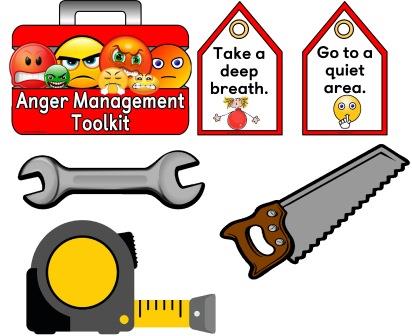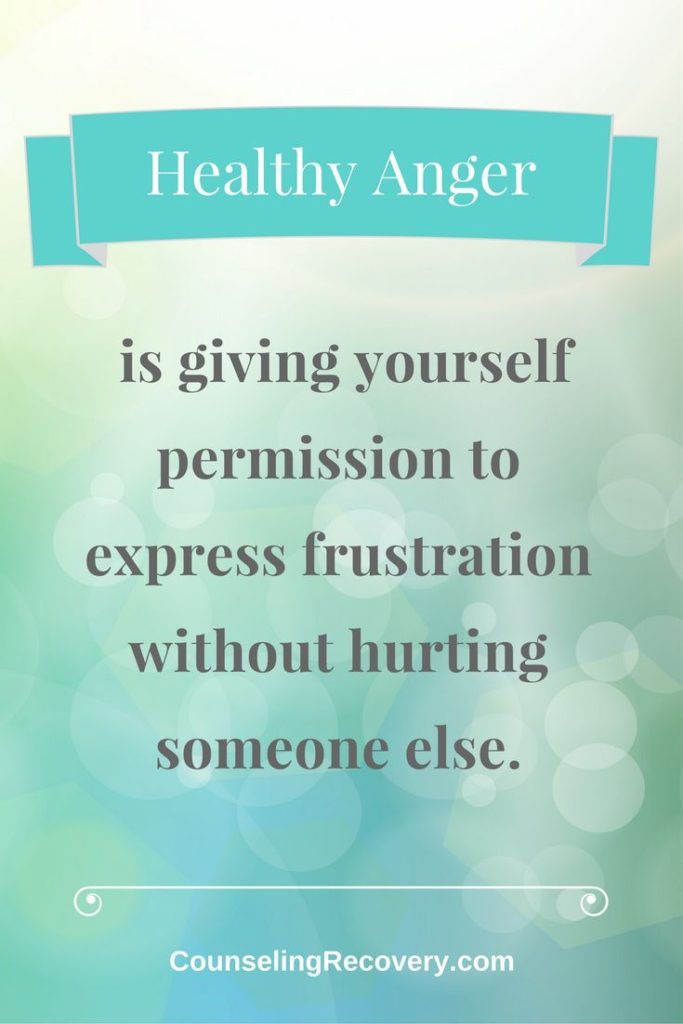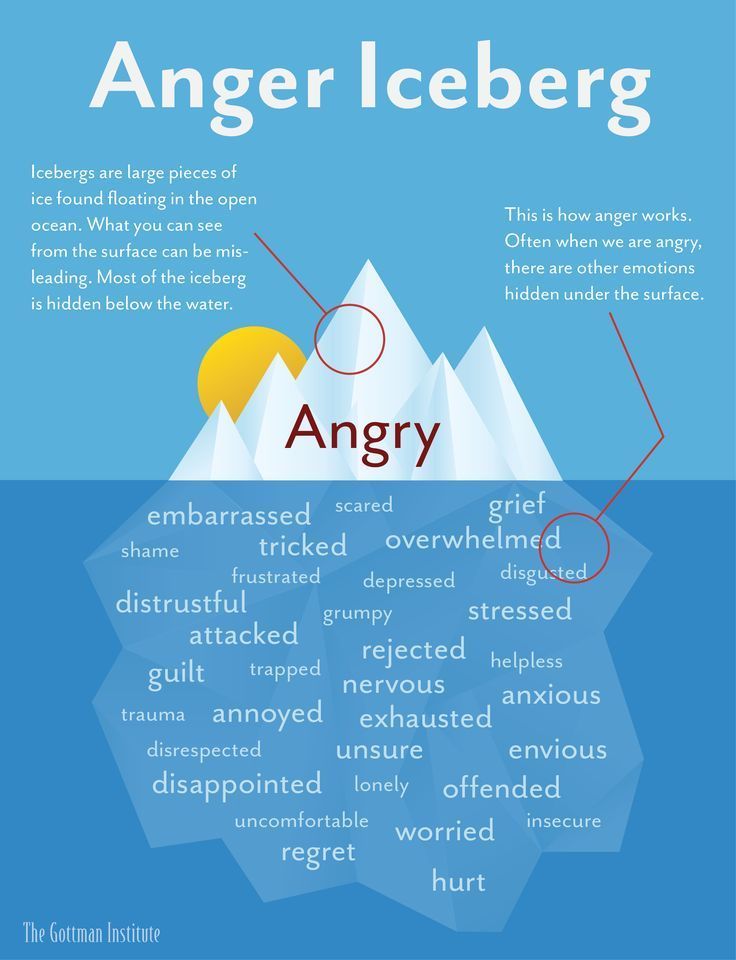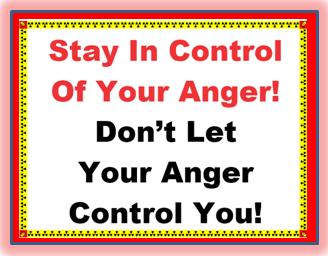People, in general, consider Anger a bad thing, but that’s just not true. There are inappropriate ways to express anger, like violence, revenge, throwing things, breaking things, insults, explosive fits of temper and other unhealthy aspects of anger. These are to be avoided and in the following paragraphs, I’ll share the benefits of Healthy Anger and how to properly use anger the right way. So, Anger is in itself neither good nor bad, it’s what you do with it that matters. Healthy Anger – Anger the Right Way will teach you what you need to know!
Anger is a Tool

We know that Anger is best viewed as a tool that helps us read and respond to upsetting situations. Research overwhelmingly indicates that feeling angry increases creativity, optimism, effective performance, as well as, your expression of anger can lead to more successful negotiations, in life or on the job. This must be done properly though.
HEALTHY ANGER – ANGER THE RIGHT WAY IS DEMONSTRATED IN THESE EIGHT CONCEPTS
According to Koetje-Balder, people that are in control of their anger and use it as a tool for success and healthy living express their anger in the following ways.
- They are flexible, using more than one style of anger to deal with difficult situations.
- They treat anger as a normal part of life.
- They use anger as a signal that there are problems they need to address.
- They take action when necessary, but only after they’ve carefully thought through the situation.
- They express their anger in moderation, without losing control.
- Their goal is to solve problems, not just express their feelings.
- They state their anger clearly, in ways that others can understand, so that others can respond appropriately to their wants and needs.
- Finally, they let go of their anger, rather than hang on to it once the problem is solved
Healthy Anger – Anger the Right Way is a GOD-GIVEN Emotion

One of the core aspects of being a human being is that we are created in God’s image. Part of what it means to be made in God’s image is that we, like God, have a variety of emotions. One of these many emotions is anger. According to Koetje-Balder, the Bible has a lot to say about anger. In fact, anger is mentioned approximately 455 times with 375 passages referring to God’s anger.
One of the core aspects of being a human being is that we are created in God’s image. Part of what it means to be made in God’s image is that we, like God, have a variety of emotions. One of these many emotions is anger. According to Koetje-Balder, the Bible has a lot to say about anger. In fact, anger is mentioned approximately 455 times with 375 passages referring to God’s anger.
Anger Energizes You
In fact, anger is the most energizing of our emotions. Worry, depression, fear, and grief drain us of energy. But when we experience the emotion of anger, our bodies go on alert and adrenaline and noradrenaline are pumped into our central and peripheral nervous systems giving us the energy to act. The emotion of anger can provide tremendous energy to deal with problems and change things for good. But when we allow anger to control us, instead of us controlling the anger, it can lead to destructive actions such as emotional, verbal, or even physical abuse and violence. We need to maintain control. If we maintain control, we are expressing righteous anger, which is healthy.

Suppressing Anger Is Harmful
In fact, suppressing anger can actually hurt you. Dr. Ernest Harburg and his team at the University of Michigan School of Public Health spent several decades tracking the same adults in a long-term study of anger. They found that men and women who hid or suppressed their anger, due to an unjust attack, found themselves more likely to get sick. They experienced increased bronchitis and heart attacks and were more likely to die earlier than people who let their anger be known.
Healthy Anger – Anger the Right Way expresses three things:
- It identifies something in our world that matters to us.
- It proclaims that we believe that something is wrong.
- It gives us the energy to do something about it.
How to Manage Anger
When you want to express anger, one way to do so is to start with what is called the “discomfort warning.” Let other people know that you are experiencing anger or irritation. Share with those around you that it is more difficult than usual for you to communicate clearly. Apologize in advance, not for your emotions because you’re entitled to your emotions. Apologize for the potential lack of clarity in how you convey what you’re about to say.
Neurotransmitter Overload
The adrenaline coursing through our body makes us want to react, but we need to use our intellect to respond correctly. Consequently, it can be difficult to think clearly with these “flight or fight” neurotransmitters coursing through our veins. Take the time to convey that your response may not make much sense – before you respond.
The aim of the discomfort warning is to keep the person from becoming defensive. It is more likely that they will accept what you have to say with empathy if they know that you are uncomfortable. They will understand that the conversation or situation is difficult for you. After providing your discomfort warning, you can then delve deeper into what bothers you.
Appropriate Communication
So, how do you appropriately communicate annoyance or anger in a way that leads to a healthy outcome? Psychologist and Anger Disorders editor Dr. Howard Kassinove mentions that the key is to use “an appropriate tone without demeaning the other person.” According to Kashdan, and Biswas-Diener, this is the first step.

Second, slow the situation down. Our initial tendency is to jump into a situation and act immediately, especially in cases where our blood is boiling. All you want to do is explode. Instead, try thinking of anger as either fast or slow, when you want to scream versus when you want to motivate a person in an appropriate way.
Pause Before You React
When you’re angry, give yourself time to pause for a moment, even if someone is standing there waiting for a response. You can even let them know that you are intentionally slowing the situation down by providing a discomfort warning. Choose to make good decisions rather than fast ones. When you’re angry, giving yourself time for pauses, deep breaths, and moments of reflection is more effective than rapid-fire responses. You will feel less angry when you slow down, but that’s not the goal. The goal is to give yourself the time necessary to make wise decisions and respond properly.
According to Huxley, anger can be a beneficial source of emotional information that focuses on attention, thinking, and behavior toward a surprising number of effective outcomes.
Here are five ways that Healthy Anger – Anger the Right Way can be a good thing in parenting:
Anger Protects
When your child is in danger your mind will automatically kick into a “fight or flight” reaction that can result in anger. You don’t have time to stop and ponder a course of action when your child is in the middle of the street and a car is coming! Anger short cuts our thinking brain to allow us to act quickly. This natural God-given reaction is a way of protecting our families from harm.
Anger Signals
The purpose of anger is to destroy problems in our lives, not our relationships. When something needs to dramatically change, anger not only lets us know but it gives us the power to do something about it. For example, if your child’s doctor won’t listen to your concerns, getting angry can stir things up and get the doctor motivated to diagnose and solve the problem.
Anger and Rules

Your child is out in the street again! Tired of yelling at your child to get his cooperation? That only reinforces the annoying behavior. Your anger may be telling you that either your expectations are too high, the rule is not clear enough, or that you are not following through on consequences consistently. Use the energy of your anger to communicate the rule again and then follow it up with consistent, age-appropriate discipline.
Anger Talks
What we say to ourselves affects our emotional state. If we tell ourselves we are bad parents then we may act like bad parents. If we tell ourselves we are doing the best we can under stressful circumstances we will react with less hostility and frustration. Practice listening to that little “anger voice.” Ask some honest friends to help you be objective concerning your parenting. If what you are saying to yourself is true, use this information to make changes in your parent/child relationship.
Anger Teaches
Our anger management styles are learned from our parents. If Mom was a yeller, we often follow her example. Fortunately, if you learned one anger expression style you can learn another. Separate the idea that feeling anger is bad. Anger is natural and unavoidable but what you do with those angry emotions is completely under your control. With practice, you can change your anger management style and communicate better.
Anger is Our Friend
Whether you’re interacting with friends, co-workers, your boss, your spouse, or your children managing your anger is paramount. Effective communication includes anger that is properly used. Used as a tool to delicately sculpt your relationships, not sledgehammer them out of existence. If you feel like exploding take that extra few seconds to pause and then clearly and appropriately express your anger. Remember anger is our friend. It keeps us safe, our families safe, corrects injustices and solves problems. Embrace your anger and use it for good.
References
Huxley, Ron. “Anger Isn’t Always Bad – 5 Ways That Anger Is GOOD!” Anger Management Groups. Accessed February 25, 2019. https://www.angermanagementgroups.com/anger-isnt-always-bad.
Kashdan, Todd, and Robert Biswas-Diener. “The Right Way to Get Angry.” Greater Good. Last modified October 20, 2014. https://greatergood.berkeley.edu/article/item/the_right_way_to_get_angry.
Koetje-Balder, Kristine. “Anger Management.” Lecture, Thriving Marriages, Christian Leaders Institute, August 7, 2018.

